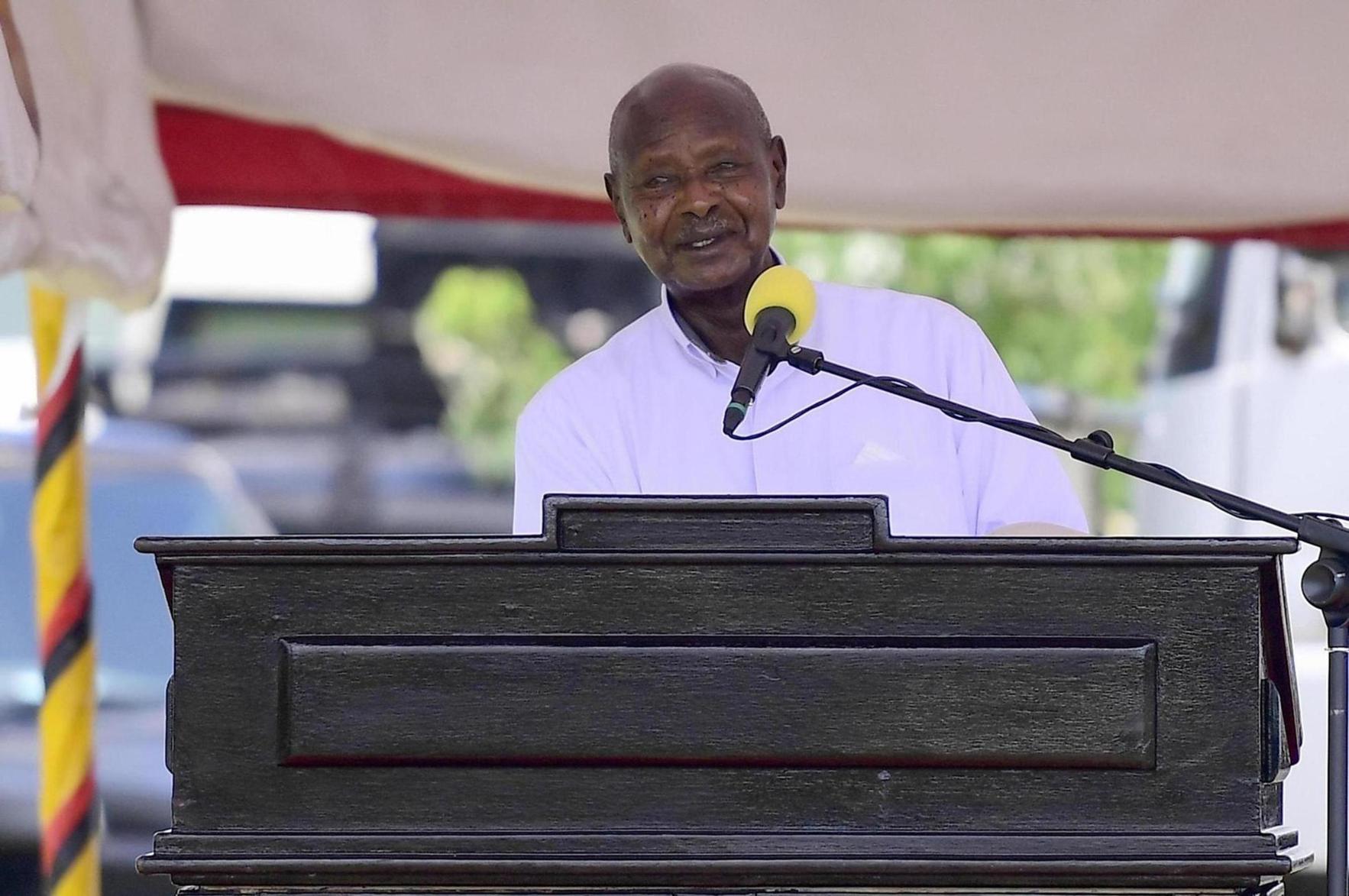Africa-Press – Uganda. President Museveni has set his sights on transforming Uganda into a Shs 1.9 quadrillion ($500 billion) economy, pledging to push aggressive value addition, enforce ideological discipline, and intensify the fight against corruption.
Speaking shortly after his nomination as National Chairman and sole presidential flagbearer of the ruling National Resistance Movement (NRM), Museveni said his decision to seek re-election was inspired by the “Tova Ku Main” campaign — a public call urging him not to abandon the national leadership helm.
“I stepped forward to ensure Uganda does not miss another turning point in history and to lead the next phase of economic transformation,” he said.
Museveni recounted Uganda’s economic journey since 1986, noting that the national economy had grown from Shs14.8 trillion ($3.9 billion) to Shs232 trillion ($61 billion) today.
He added that Uganda had attained lower middle-income status, with the per capita income now standing at Shs4.8 million ($1,263).
However, he warned that corruption could derail this progress if not tackled decisively.
“We can achieve much more if we decisively eliminate corruption,” Museveni said, stressing that graft remains Uganda’s biggest barrier to prosperity.
He also decried the country’s continued export of raw materials, which, he said, robs Uganda of the true economic value of its resources.
Using coffee as an example, Museveni said a kilogram of raw coffee fetches only Shs9,300 ($2.5), yet the same quantity, when roasted and packaged, can earn up to Shs 150,000 ($40) on the international market.
“Germany, which doesn’t grow coffee, earns about Shs 247 trillion ($65 billion) from coffee every year,” he noted.
Museveni pledged to champion value addition in agriculture, minerals, and other resource-rich sectors, including coffee, cotton, and dairy, to create jobs, retain wealth, and boost exports.
He also pointed to Uganda’s emerging capabilities in automobiles, electronics, and pharmaceuticals, describing them as essential pillars of a “knowledge economy.”
“If we stop exporting raw products and add value here, Uganda will reach high middle-income status long before 2040,” he said.
Turning to party matters, Museveni cautioned NRM leaders against careerism and self-interest, reminding them that political leadership should be rooted in sacrifice and national service — not personal gain.
“Political leadership is not a job. It is a mission of sacrifice. If we, your predecessors, had sought jobs, Uganda would never have been rescued,” he said.
He urged NRM cadres to recommit themselves to the party’s founding principles: patriotism, Pan-Africanism, socio-economic transformation, and democracy.
The President said fighting corruption would remain a top priority and promised to strengthen oversight mechanisms while promoting clean leadership that serves the people.
Museveni’s formal nomination sets the stage for his campaign for a seventh term, as the NRM now begins mobilizing for the 2026 general elections.
His focus will be on transforming Uganda into a modern, industrialized economy driven by local production and self-sufficiency.
“I am ready to contribute in the next five years to drive Uganda toward a Shs 1.9 quadrillion economy,” Museveni declared.
For More News And Analysis About Uganda Follow Africa-Press






